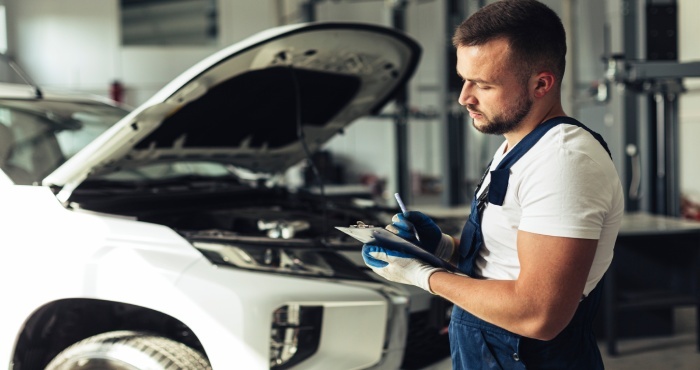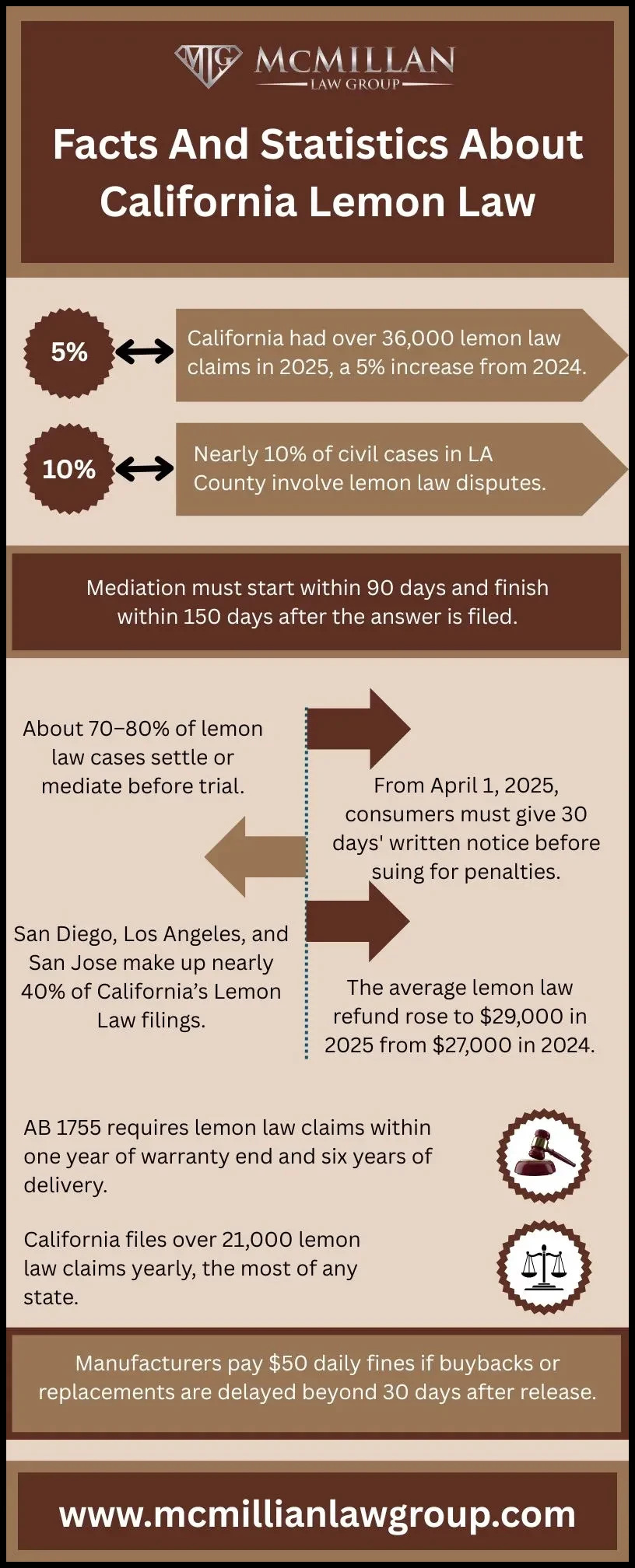The Lemon Law in California provides crucial protections for consumers who purchase or lease defective vehicles. Understanding how this law applies to manufacturer warranties is essential for safeguarding your rights. This article delves into the connection between warranties and the California Lemon Law, providing expert insights from a San Diego Lemon Law lawyer to guide you in making well-informed decisions.
Understanding Manufacturer Warranties
When you buy a new or certified pre-owned vehicle, the manufacturer includes a warranty that ensures the vehicle operates correctly for a designated time frame or mileage. These warranties typically address flaws in materials or craftsmanship and provide complimentary repairs or replacements for any faulty parts. There are three primary categories of warranties:
- Bumper-to-Bumper Warranty: This covers nearly all parts of the vehicle, but excludes items that naturally wear out over time, such as brake pads and tires.
- Powertrain Warranty: This warranty specifically pertains to essential mechanical elements like the engine, transmission, and drivetrain.
- Extended Warranty: This is an optional plan that prolongs coverage beyond the initial warranty period and is often bought separately.
Although warranties guarantee repairs, they may not shield consumers from ongoing defects. This is where the California Lemon Law Lawyer becomes relevant.
How California Lemon Law Works
California’s Lemon Law, officially referred to as the Song-Beverly Consumer Warranty Act, offers solutions for consumers who buy or lease cars that have serious flaws which the manufacturer fails to fix after several attempts. This legislation is applicable to both new and used vehicles that are still under the manufacturer’s original warranty.
For a vehicle to be classified as a “lemon,” it must satisfy these conditions:
- The defect must significantly hinder the vehicle’s functionality, safety, or worth.
- The manufacturer must have been provided with a reasonable number of chances to fix the issue.
- The problem should not arise from misuse, neglect, or unauthorized alterations.
- The defect must manifest during the warranty period provided by the manufacturer.
If a vehicle fulfills these conditions, the manufacturer is obligated to either replace it or refund the purchase price, which includes taxes, registration fees, and certain additional costs.
The Relationship Between Warranties and Lemon Law
The California Lemon Law is closely associated with manufacturer warranties, as it only pertains to vehicles that are still covered by the original factory warranty. Consequently, if a defect occurs after the warranty period has ended, consumers may not be able to seek remedies under the Lemon Law unless they have an extended warranty that addresses the problem.
Important Considerations:
- Warranty Status: If your vehicle is no longer under warranty, your protections under the Lemon Law may be limited.
- Repair Responsibilities: Manufacturers are required to fulfill their warranty commitments, and if they repeatedly fail to resolve a problem, it may lead to a Lemon Law claim.
- Used Cars: The protections offered by the Lemon Law for used cars apply only if those vehicles are still under the original manufacturer’s warranty.
What Consumers Should Do
If you think your car may be a lemon, following these guidelines can help bolster your claim:
- Keep Detailed Records: Maintain a thorough log of all repair efforts, service invoices, and correspondence with the dealership or manufacturer.
- Verify Warranty Status: Confirm that your vehicle remains covered by the original manufacturer’s warranty.
- Allow the Manufacturer Sufficient Opportunities: Give the manufacturer a fair chance to resolve the issue by allowing them multiple attempts to make repairs.
- Seek Legal Counsel: If the manufacturer does not fulfill their responsibilities, consult with a knowledgeable Lemon Law attorney for guidance.
The Role of Expert Legal Advice
Dealing with Lemon Law claims can be challenging, especially when manufacturers refuse to provide refunds or replacements. Seeking the assistance of the best Lemon Law attorney in San Diego can benefit you by:
- Assessing whether your vehicle meets the criteria for a lemon.
- Collecting essential paperwork to bolster your case.
- Engaging in negotiations with the manufacturer to secure a just settlement.
- Advocating on your behalf in legal matters if required.
Grasping how warranties connect with California’s Lemon Law is crucial for safeguarding your consumer rights. Warranties offer some level of initial coverage, but if a vehicle continues to have defects, you might be eligible for a complete refund or replacement through the Lemon Law. If you’re dealing with recurring problems with your vehicle, consulting a legal expert can guide you in effectively addressing your situation.
By remaining knowledgeable and taking initiative, consumers in California can guarantee that they obtain the protections entitled to them under both warranty terms and Lemon Law regulations.




